Welcome to the world of eco-friendly kitchenware for home chefs, where sustainable kitchen products help us create an environmentally friendly kitchen, one eco-conscious step at a time. The journey towards a greener kitchen begins with simple product swaps, focusing on reusable, non-toxic, and ethical kitchen items that minimize waste and promote healthier cooking habits.
Key Takeaways
- Reusable paper towels and beeswax food wraps for eco-friendly cleaning and storage
- Glass and silicone as sustainable food storage solutions
- Organic cotton or mesh reusable produce bags for zero-waste shopping trips
- Plastic-free water bottles and coffee cups for on-the-go hydration
- Eco-friendly dinnerware and utensils made from sustainable materials like bamboo, wood, and recycled glass
- Non-toxic cookware and bakeware to enhance healthy cooking practices
- Eco-friendly kitchen cleaning products such as compostable sponges and natural dish soaps
Switch to Reusable Paper Towels for an Eco-Conscious Clean
Reducing kitchen waste and promoting a zero-waste kitchen is essential for anyone striving to live a more environmentally friendly life, and the simple act of switching from single-use paper towels to reusable alternatives can make a substantial difference in the long run. By incorporating reusable paper towels into your daily kitchen cleaning routine, you will not only save trees but also contribute to a more sustainable kitchenware collection.
There are several brands that offer high-quality, reusable paper towels, two of which are noteworthy for their eco-friendly approach:
- Papaya: Known for their biodegradable sponge cloths, Papaya’s products are highly absorbent and can replace up to 17 rolls of traditional paper towels. The combination of cellulose and natural fibers in these cloths allows them to be 100% compostable after their useful life has ended.
- Marley’s Monsters: A woman-owned business, Marley’s Monsters offers eco-friendly, cotton flannel paper towels that come in a variety of colors and patterns, and they can be rolled up on holders, creating an attractive and functional display in your kitchen.
Both of these eco-friendly kitchen cleaning products not only help reduce waste by being reusable but also add a personalized touch to your kitchen décor.
“I’ve switched to using reusable paper towels and have seen a noticeable decrease in the amount of waste my family produces. It’s an easy change that has a big impact on the environment!”
When it comes to taking care of your reusable paper towels, most can be machine washed, ensuring a thorough clean and a longer lifespan. Additionally, by air drying your reusable paper towels, you can further reduce your energy consumption, enhancing the eco-friendliness of these sustainable kitchen items.
| Brand | Material | Key Benefits |
|---|---|---|
| Papaya | Cellulose and natural fibers | Biodegradable, highly absorbent, compostable |
| Marley’s Monsters | Cotton flannel | Reusable, attractive designs, machine washable |
Embracing a zero waste kitchen begins with small yet meaningful changes, such as incorporating reusable paper towels into your home. Make a positive impact on our planet and switch to eco-friendly kitchen cleaning products, contributing to a more sustainable lifestyle.
Sustainable Storage with Beeswax Food Wraps
Beeswax food wraps are eco-friendly kitchen products that provide an alternative to plastic wraps for covering and preserving food. These reusable food wraps are made from GOTS-certified organic cotton coated with beeswax, making them both sustainable and practical for everyday use.
The Eco-Friendly Alternative to Plastic Wrap
Beeswax wraps, featuring biodegradable bowl covers and organic cotton wraps, effectively substitute single-use plastic cling film. This sustainable kitchen item aims to reduce plastic waste and protect our environment. Moreover, beeswax wraps offer versatility in the kitchen, as they can mold to the shapes of various containers, fruits, and vegetables, ensuring your food remains fresh.
How to use beeswax wraps: Press the wrap around the item with the warmth of your hands to create a seal, ensuring food stays fresh and protected.
Sourcing from Ethical Brands for Sustainability
Certain brands, like Bee’s Wrap and etee, are committed to creating sustainable beeswax food wraps while maintaining high ethical and environmental standards. As certified B Corps, these companies emphasize on maintaining sustainability and ensuring an eco-friendly footprint. The wraps often come in sets with varying sizes to cater to different needs, making it convenient for those new to sustainable kitchen practices.
- Bee’s Wrap: Known for their bee-themed patterns and reusable attribute, Bee’s Wrap partners with environmental agencies to support biodiversity.
- etee: With wraps made from organic cotton muslin, jojoba oil, and tree resin, etee focuses on sustainability and avoids harmful dyes in their production process.
Longevity and Care Tips for Beeswax Wraps
Providing proper care for beeswax wraps is crucial to maximize their lifespan. By caring for sustainable kitchenware, these wraps can effectively keep your food fresh for extended periods.
| Do | Don’t |
|---|---|
| Clean wraps after use with cool water and mild detergent. | Expose wraps to high heat or direct sunlight for long periods. |
| Pat dry and allow the wrap to air-dry before reusing. | Use wraps to store raw meats or hot food items. |
| Repair wraps when needed with additional beeswax mixture. | Use harsh chemicals, scrub brushes, or dishwashers to clean. |
By incorporating beeswax food wraps into your kitchen, you can contribute to a more sustainable lifestyle and reduce your plastic consumption while preserving the freshness of your food.
Glass and Silicone: The Dynamic Duo for Food Storage
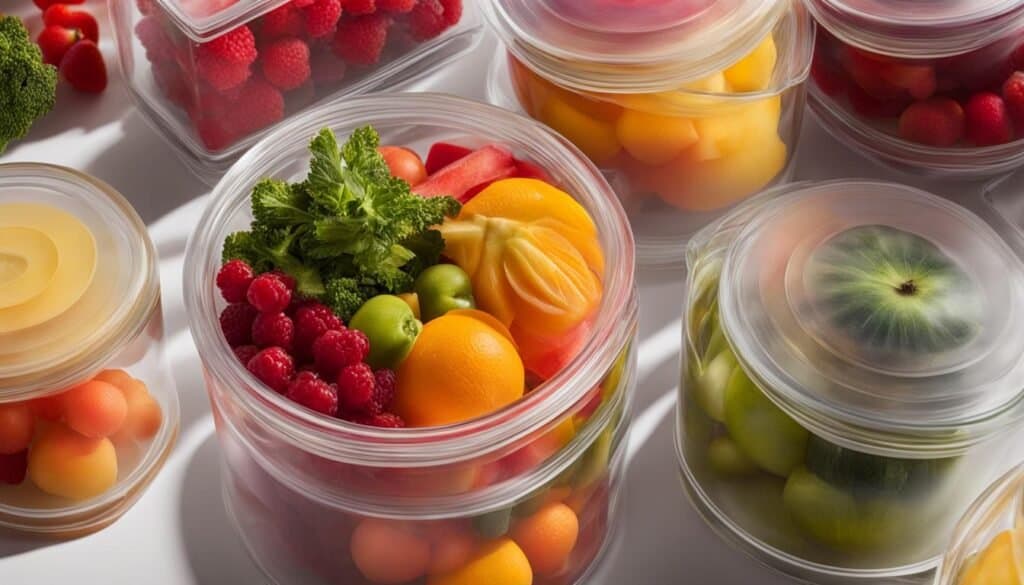
When it comes to eco-friendly food storage, reusable silicone food savers and glass storage containers are the answer to reducing plastic waste in the kitchen. They offer a convenient and sustainable alternative to single-use plastics, each with their unique advantages. Let’s take a closer look at these two eco-friendly food container options and their benefits.
“Silicone and glass containers provide highly temperature resistant and sustainable solutions that can transition from the refrigerator to the oven with ease.
Reusable silicone food savers, such as silicone bags from Stasher, are a fantastic replacement for single-use plastic bags and wraps, offering a range of sizes, colors, and designs to suit diverse needs. These bags are made from high-quality materials, ensuring they can withstand various temperatures without compromising the quality of the food stored within. Additionally, Stasher bags are dishwasher safe, making them easy to clean and reuse. Stasher is also committed to reducing plastic waste through their recycling program, where customers can send in used bags for repurposing into new products.
Glass storage containers, on the other hand, provide a perfect solution for storing dry goods and leftovers. Brands like Kilner produce a range of jars with sealable lids, which help to retain freshness while offering a visually appealing storage solution. Glasslock is another popular choice for eco-conscious consumers, offering tempered glass containers with airtight lids – perfect for meal prep, cooking, and storage. These containers are also microwave, oven, and dishwasher safe, further showcasing their dedication to aesthetics, functionality, and sustainability.
SuperBee highlights the importance of using reusable bags for grocery shopping. Opt for bags made of cotton, hemp, or other natural cloth or mesh and wash them between visits to the grocery store to minimize plastic waste.
Combining silicone and glass storage options in your kitchen creates a harmonious and eco-friendly food storage solution. Here are some top benefits:
- Food stays fresher for longer, reducing spoilage and waste.
- Elimination of single-use plastics for a more sustainable kitchen.
- Increased organization in your refrigerator, pantry, or countertop.
- Temperature resistance ensures reheating or freezing is smooth.
- Ease of cleaning and maintenance.
In conclusion, incorporating reusable silicone food savers and glass storage containers into your kitchen routine is an excellent way to make a positive impact on the environment by minimizing single-use plastics and promoting sustainable storage solutions. Your kitchen will not only be more eco-friendly but also efficient and organized, ensuring that you can effortlessly adopt and maintain sustainable habits for years to come.
Reusable Produce Bags: A Simple Step Towards Zero Waste
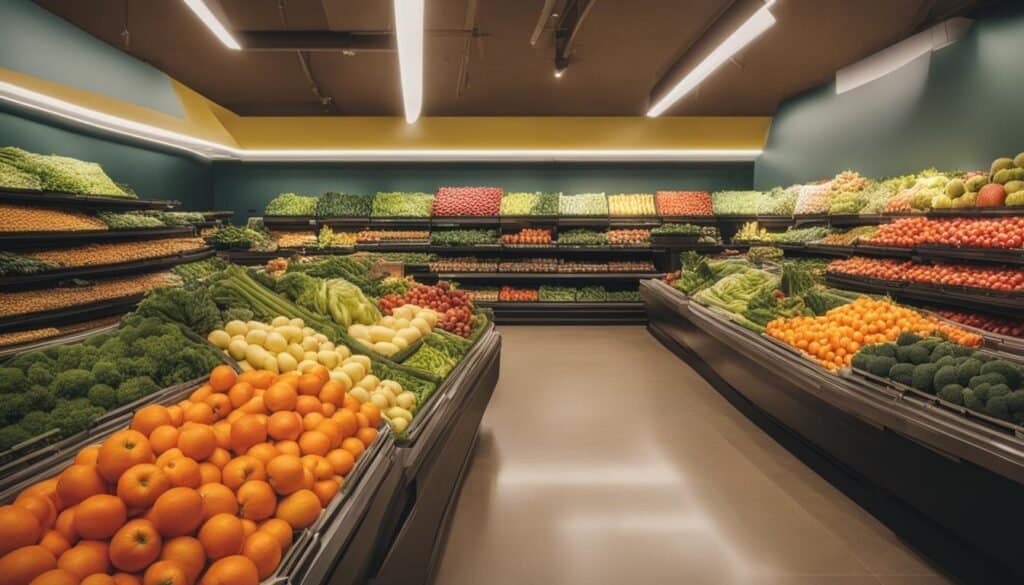
Organic cotton or mesh reusable produce bags are essential for reducing single-use plastic during shopping. These bags, such as those offered by Organic Cotton Mart, are widely recommended for their durability and compostability, which aligns well with a zero-waste lifestyle. Swapping out plastic bags for eco-friendly market bags can significantly reduce the environmental impact of your weekly shopping trips.
Why Choosing Organic Cotton or Mesh Bags Matters
Organic cotton bags are breathable, durable, and compostable, making them an ideal choice for transporting and storing produce. These bags are made from ethically sourced materials, ensuring that your purchase supports responsible farming practices. Mesh bags, on the other hand, are lightweight and typically made from recycled materials, further promoting sustainability. Both varieties have their advantages, but choosing either one will be a significant step forward in reducing your reliance on single-use plastics.
“With each reusable produce bag, we’re one step closer to a zero-waste lifestyle and a cleaner planet.”
From Market to Fridge: Keeping Produce Fresh
Simply using reusable grocery bags is not enough to guarantee the longevity of your fruits and vegetables – specialized bags are also available for this purpose. Veggie Saver’s unbleached cotton bags, for example, are designed to help maintain the freshness of your produce for a longer period.
To ensure your fruits and vegetables remain fresh from the market to your fridge, consider using a combination of Veggie Saver bags and proper storage techniques, such as:
- Storing fruits and vegetables separately to prevent ethylene gas from speeding up the ripening process
- Keeping certain produce items, like tomatoes and avocados, at room temperature until ripe
- Properly wrapping leafy greens in damp reusable produce bags to retain moisture and freshness
Implementing these sustainable practices will not only help reduce waste in your kitchen but also ensure your produce stays fresh longer, contributing to a healthier planet and improved well-being.
Hydration with a Purpose: Eco-Friendly Water Bottles and Coffee Cups
Staying hydrated is essential for our well-being, but the environmental impact of disposable plastic bottles remains a significant concern. The good news is that there are various eco-friendly hydration options available, which include innovative and stylish plastic-free water bottles and coffee tumblers.
As a prime example, Klean Kanteen offers an assortment of insulated and non-insulated water bottles, coffee cups, and tumblers. They’re made of food-grade stainless steel, which ensures durability and a safer drinking experience. The double-wall vacuum insulation in their insulated products keeps your beverages hot or cold for hours, making these bottles and cups perfect companions throughout the day.
Another remarkable brand, S’well, similarly offers triple-layered, insulated bottles made from food-grade stainless steel. Their sleek designs and wide range of colors not only make a style statement but also promote sustainable sipping habits by encouraging the use of reusable bottles as a substitute for disposable ones.
“Switching to eco-friendly water bottles and coffee cups can make a huge difference in decreasing plastic waste and supporting a healthier planet.”
Let’s take a closer look at the advantages of some popular materials used in making eco-friendly water bottles and coffee cups:
- Stainless Steel: Resistant to corrosion, stainless steel bottles and cups are long-lasting, recyclable, and don’t leave a metallic taste in your drinks.
- Glass: Known for its chemical cleanliness, glass bottles offer a pure taste and can be easily cleaned. They are also recyclable, but their fragility is something to consider.
- Silicone: Although not as durable as stainless steel or glass, silicone bottles and cups are lightweight, flexible, and less prone to breakage.
In conclusion, investing in eco-friendly water bottles and coffee cups not only benefits the environment by reducing plastic waste but also supplies safe and sustainable hydration options for you and your family. It’s a small step towards a greener future that can have a big impact on our planet and your everyday lifestyle.
Serving Sustainability with Eco-Friendly Utensils and Dinnerware
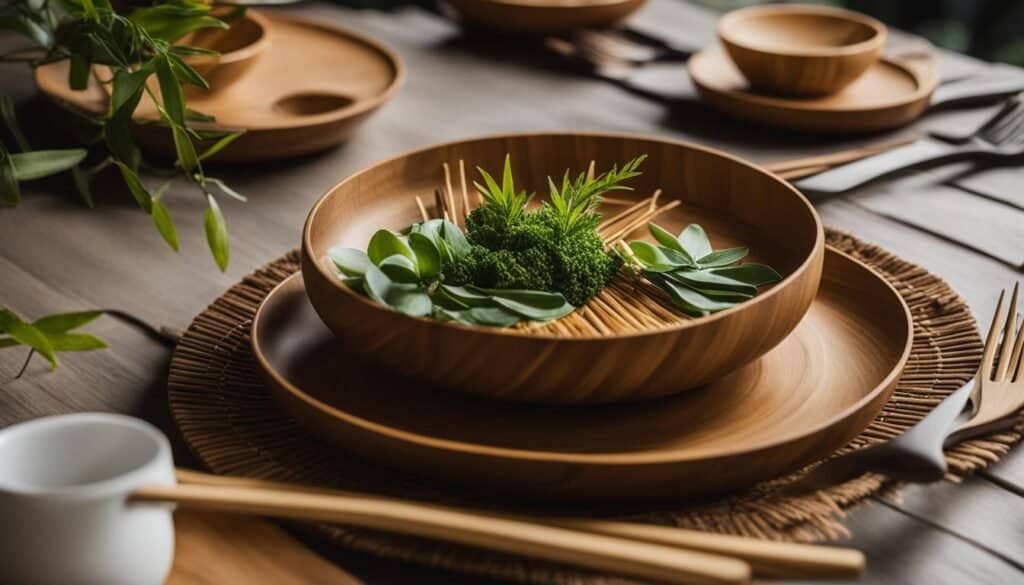
Creating a sustainable table setting starts with the materials you choose. Bamboo utensils, wooden cooking utensils, eco-friendly dinnerware, recycled glass plates, and ceramic dinnerware are all excellent options for an environmentally friendly and stylish table setting.
Beeco suggests investing in long-lasting kitchenware when buying cookware, utensils, and cutlery, viewing them as an investment for eco-friendly kitchen practices.
Material Matters: Bamboo, Wood, and Recycled Glass Options
Bamboo and wooden cooking utensils are becoming increasingly popular due to their renewable and biodegradable nature. Companies like Material Kitchen offer hand-finished stoneware and durable glassware made from recycled materials, contributing to the eco-friendly goal while adding a touch of elegance to your table setting. Additionally, Food52 offers vintage silver-plated cutlery, allowing you to serve in style while minimizing your environmental impact.
Eco-friendly dinnerware goes beyond materials, focusing on sustainable manufacturing processes and ethical sourcing.
Elevate Your Dining Experience with Stylish Eco Sets
Choosing ethically manufactured ceramic dinnerware sets from brands like Our Place not only provides an eco-friendly dining solution but also enhances the kitchen’s aesthetics as sustainable home decor. With various designs available, these dinnerware sets can enrich any eco-conscious household’s dining experience.
- Select dinnerware made from sustainable materials, such as bamboo, wood, or recycled glass.
- Explore eco-friendly brands known for ethical manufacturing and sustainable practices.
- Invest in stylish, durable sets that can elevate your dining experience while supporting the environment.
| Material | Benefits | Eco-Friendly Brands |
|---|---|---|
| Bamboo | Renewable, biodegradable, lightweight, and durable | Material Kitchen, Bambu |
| Wood | Natural, durable, and biodegradable | Earlywood, Scanwood |
| Recycled Glass | Resourceful, sturdy, and environmentally friendly | Material Kitchen, Fire & Light |
| Ceramic | Stylish, versatile, and eco-conscious manufacturing processes | Our Place, East Fork Pottery |
Incorporating eco-friendly utensils and dinnerware into your home is an easy and effective way to reduce your environmental impact while creating a stylish and sustainable dining experience. By selecting items made from renewable, biodegradable, or recycled materials, you’ll be doing your part in creating a healthier, more sustainable planet.
Cook Responsibly with Non-Toxic Cookware and Bakeware
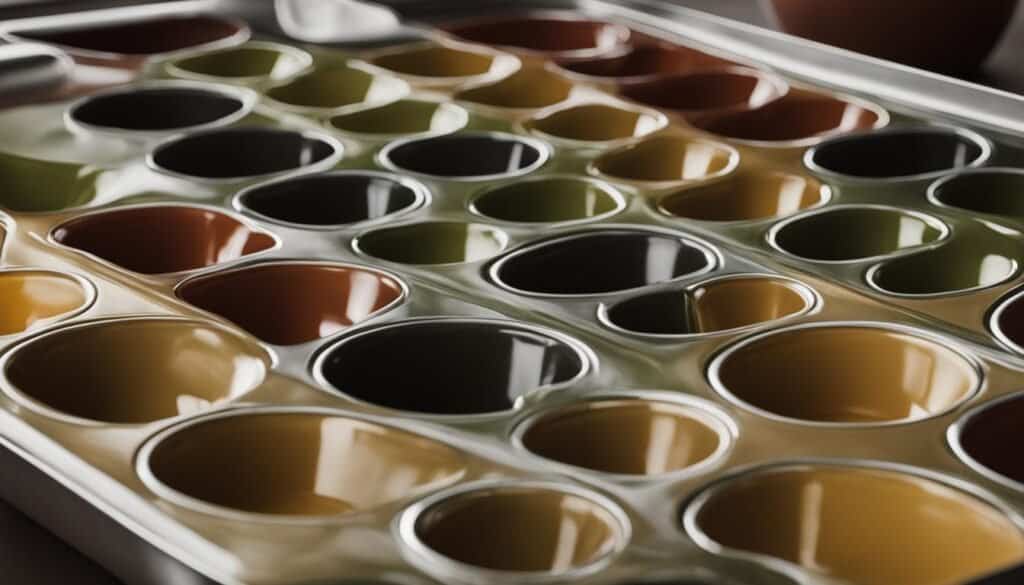
When it comes to maintaining a healthy and environmentally friendly kitchen, choosing the right cookware and bakeware is crucial. Many traditional items are made from materials that can release toxic chemicals during the cooking process, ultimately affecting the quality of your food and the environment. To avoid such dangers, switch to PTFE-free cookware, opting for brands that use healthy cooking materials and sustainable cooking tools. This not only ensures the wellbeing of your family but also helps you contribute to a greener planet.
One such brand that takes a responsible approach is Caraway. Offering a range of eco-friendly, non-toxic cookware and bakeware, Caraway has set the bar high for high-quality, sustainable cooking tools. Ceramic cookware is a popular choice among Caraway fans, as it is both aesthetically appealing and an environmentally friendly alternative to traditional non-stick pans.
Caraway’s ceramic cookware is made from natural materials, PTFE-free, and available in beautiful, sustainable designs.
While Caraway is a great option, there are many other brands that emphasize eco-friendly cooking materials. Brands like GreenLife, GreenPan, SCANPAN, and Lodge are known for their non-toxic bakeware and cookware made from materials like ceramic, cast iron, and stainless steel. These options are not only healthier for your cooking practices but also significantly contribute to fostering a greener kitchen environment.
- GreenLife: Offers a range of ceramic non-stick cookware and bakeware options that are free from PFAS, PFOA, lead, and cadmium.
- GreenPan: Known for their trademark ceramic non-stick coating, Thermolon, which is PTFE- and PFOA-free and doesn’t release toxic fumes when overheated.
- SCANPAN: A Danish brand that offers eco-friendly, PFOA-free, non-stick cookware made with a unique ceramic-titanium technology.
- Lodge: One of the oldest and most respected American cookware producers, offering a wide range of cast iron cookware, which is a durable and naturally non-stick option.
When choosing cookware and bakeware for your kitchen, it is crucial to opt for non-toxic and sustainable materials by selecting brands that prioritize the quality of their products while keeping an eco-friendly approach.
| Brand | Material | Key Features |
|---|---|---|
| Caraway | Ceramic | PTFE-free, sustainable designs, easy-to-clean surface |
| GreenLife | Ceramic | Free from PFAS, PFOA, lead, and cadmium |
| GreenPan | Ceramic | Thermolon non-stick coating, PTFE- and PFOA-free |
| SCANPAN | Ceramic-Titanium | PFOA-free, unique ceramic-titanium technology |
| Lodge | Cast Iron | Durable, naturally non-stick, versatile |
Making the transition to PTFE-free cookware and selecting healthy cooking materials may seem like a small step, but it significantly impacts your family’s health, the quality of your food, and the well-being of our planet. Remember that every conscious decision you make in your kitchen contributes to a more sustainable and eco-friendly lifestyle.
Conscious Brewing: Non-Plastic Coffee Makers and Accessories
Embracing sustainability doesn’t stop at kitchen storage and utensils – it extends to the way you brew your favorite morning beverage. Many coffee enthusiasts are replacing single-use paper filters and plastic straws with reusable coffee filters and stainless steel straws. This shift contributes to a more environmentally friendly coffee experience and supports brands committed to reducing waste and promoting sustainability.
The Impact of Reusable Coffee Filters and Metal Straws
Reusable coffee filters and stainless steel straws significantly decrease the waste associated with disposable paper filters and plastic straws, encouraging a more eco-conscious coffee culture. Brands like Stasher offer durable reusable filters and stainless steel straws and dedicate a portion of their profits to environmental causes, making it easy to support companies making a positive impact in the coffee industry.
Choosing Appliances that Save Energy and Reduce Waste
Opting for eco-friendly appliances in the kitchen leads to reduced energy consumption, minimal waste, and longer-lasting items. Paying attention to energy efficiency when selecting small appliances, such as induction cookware, kettles, dishwashers, and refrigerators, can substantially reduce the environmental impact of your kitchen. In addition to energy efficiency, prioritize eco-friendly small appliances such as eco-friendly coffee makers, slow cookers, and toasters to create a more sustainable and green cooking and eating environment.
| Sustainable Kitchen Tool | Benefit |
|---|---|
| Reusable Coffee Filters | Reduces waste from disposable paper filters |
| Stainless Steel Straws | Replaces single-use plastic straws, decreasing plastic waste |
| Energy-Efficient Appliances | Less energy consumption, reducing environmental impact |
| Eco-Friendly Coffee Makers | Produces less waste, supports sustainable manufacturing |
By consciously choosing sustainable brewing tools and eco-friendly kitchen appliances, you are taking a significant step towards a greener lifestyle and a healthier planet. Embrace these sustainable options to make a real difference in your daily coffee routine and the environment alike.
Green Cleaning: Eco-Friendly Sponges and Soaps for the Kitchen
Eco-friendly kitchen cleaning is more than just a trend; it’s a responsible choice that benefits our planet and overall well-being. By using compostable dish sponges and natural dish soaps, we can significantly reduce our environmental impact and improve the sustainability of our cleaning practices. Let’s explore some of the top eco-friendly cleaning products that are both effective and kind to the environment.
Firstly, let’s talk about compostable dish sponges. Traditional plastic-based sponges can take hundreds of years to decompose, contributing to landfill waste and pollution. In contrast, compostable sponges are made from natural materials such as coconut husk and wood cellulose, which break down much faster once they reach the end of their useful life.
Did you know? Compostable dish sponges can decompose in just a few months, reducing landfill waste and lowering your carbon footprint.
One option for environmentally conscious consumers is bamboo fibre sponges. Bamboo is a fast-growing and renewable resource, making it an eco-friendly choice for home cleaning products. Bamboo fibre sponges are not only biodegradable but also highly absorbent and durable, so you’re not sacrificing performance for sustainability.
Moving on to natural dish soap, traditional cleaning products often contain harsh chemicals that can harm our ecosystem when released into waterways. By switching to eco-friendly cleaning products like those provided by Blueland, we can minimize the environmental impact of our cleaning routine. Blueland’s dish soap formulations are effective, gentle on your hands, and free from toxic chemicals. Plus, they utilize recyclable packaging, reducing plastic waste.
- Compostable dish sponges
- Bamboo fibre sponges
- Natural dish soap
By incorporating eco-friendly cleaning products like compostable dish sponges, bamboo fibre sponges, and natural dish soap into our kitchens, we’re taking a significant step toward a greener and cleaner environment. Remember, small changes can make a big difference in protecting our planet for future generations.
Conclusion on Kitchenware for the Home Chef
Adopting a zero-waste lifestyle begins with embracing sustainable kitchen swaps. The journey to a more eco-conscious and environmentally friendly kitchen starts with making simple changes in our day-to-day habits, such as replacing single-use items with reusable alternatives and choosing sustainable materials.
By being mindful of our waste management practices and integrating eco-friendly kitchenware into our kitchens, we can significantly reduce our environmental impact and work towards a healthier planet. As we embark on our sustainable kitchen journey, we can take pride in the fact that we are not only transforming our cooking habits for the better but also contributing to the preservation of our environment for future generations.
So, let’s continue in our pursuit of eco-conscious cooking and invest in environmentally friendly kitchen habits that align with our values. It’s never too late to shift our focus towards a sustainable lifestyle, and every small step we take will ultimately lead to a more significant impact for a healthier planet.
FAQ on Eco-friendly Kitchenware for Home Chefs
Q: What are some kitchen utensil suggestions for a sustainable kitchen?
A: Some sustainable kitchenware recommendations include steel cookware sets, cast iron dutch ovens, cutting boards made from recycled paper or organic kitchen materials, and paper-based cooking utensils. These items have less environmental impact and can last a lifetime.
Q: What makes a kitchen appliance compostable and why is it essential?
A: A compostable kitchen appliance is made with materials that decompose naturally, reduce the amount of landfill waste, and return valuable nutrients to the earth. An example of this is a composter, which can transform your kitchen waste into nutrient-rich compost for your garden, minimizing its environmental impact.
Q: What are some eco-friendly gift ideas related to sustainable kitchen products?
A: Eco-friendly gift ideas for home chefs who are interested in sustainability might include kitchen utensils crafted by artisans, beautiful organic kitchen cutting boards, and BPA-free cooktops. These products are not only kind to the earth but also eco-friendly and safe for the user.
Q: Are there sustainable and safe alternatives for plastic sandwich bags?
A: Yes, there are many sustainable and safe alternatives to plastic sandwich bags available. Products made with 100% recycled materials, such as reusable silicone storage bags or beeswax-wrapped sandwich bags, offer ways to minimize waste. These eco-friendly alternatives are great ways to reduce the environmental impact and transform your kitchen into a more sustainable space.
Q: How do cast iron dutch ovens serve as sustainable kitchenware?
A: Cast iron dutch ovens are excellent examples of sustainable kitchenware because they’re made entirely from natural materials, which makes them environmentally compliant. These heavy-duty ovens are also capable of lasting for years, if not a lifetime, reducing the need for frequent replacements that may end up in landfills.
Q: How can a non-porous surface in kitchen utensils improve its sustainability?
A: A non-porous surface in kitchen utensils such as cutting boards or cooking utensils means that they won’t absorb harmful chemicals, dirt, or food waste. This not only maintains the quality of your food but also extends the lifespan of the kitchenware, making it a worthwhile eco-friendly and long-lasting investment.
Q: What are other ways to minimize the environmental impact of my kitchen?
A: Besides choosing eco-friendly kitchenware and appliances, using less water when washing dishes, composting food waste, using packaging materials made from upcycled or recycled materials, and cooking in bulk to reduce energy consumption are also effective ways to minimize the environmental impact of your kitchen.
Q: Does “Made in the U.S.” mean the product is eco-friendly?
A: Not necessarily. While “Made in the U.S.” often suggests good quality and could imply fair labor practices, it doesn’t necessarily mean the product is eco-friendly. To ensure the product is environmentally friendly, check if the company has partnered with environment-specific organizations, if it uses sustainable sourcing practices, and if the product is made from natural, organic, or recycled materials.
Q: Can eco-friendly kitchenware be as effective as regular kitchenware?
A: Absolutely. High-quality eco-friendly kitchenware made from natural materials or with an environmentally compliant process can perform just as well, if not better than, traditional kitchenware. For instance, cast iron dutch ovens retain heat incredibly well, making your cooking more energy-efficient.
Q: Are there eco-friendly alternatives to commonly used synthetic cleaning products?
A: Yes! Natural ingredients like vinegar, baking soda, and essential oils can form the basis of many homemade cleaning solutions. There are also numerous cleaning products available now made from plant-based ingredients that are a perfect fit for an organic kitchen and won’t leave behind potentially harmful residues.

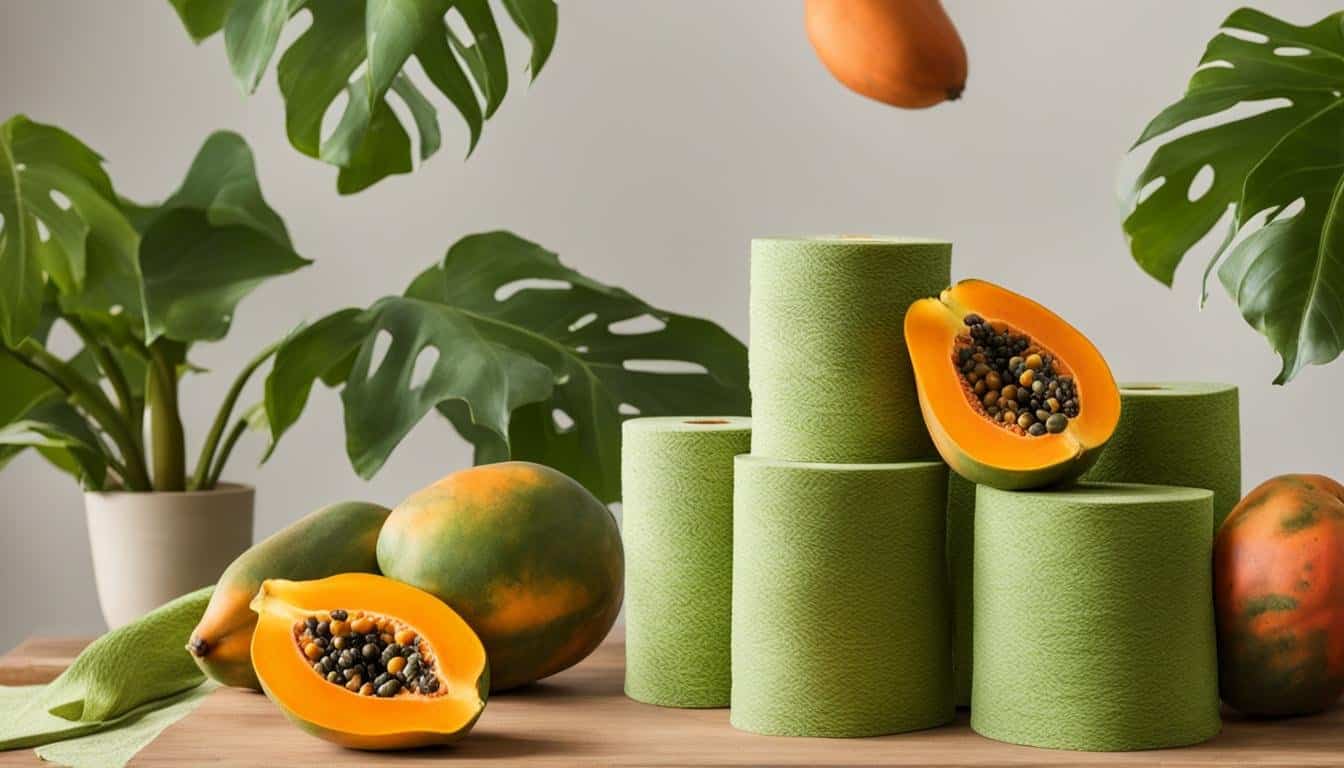


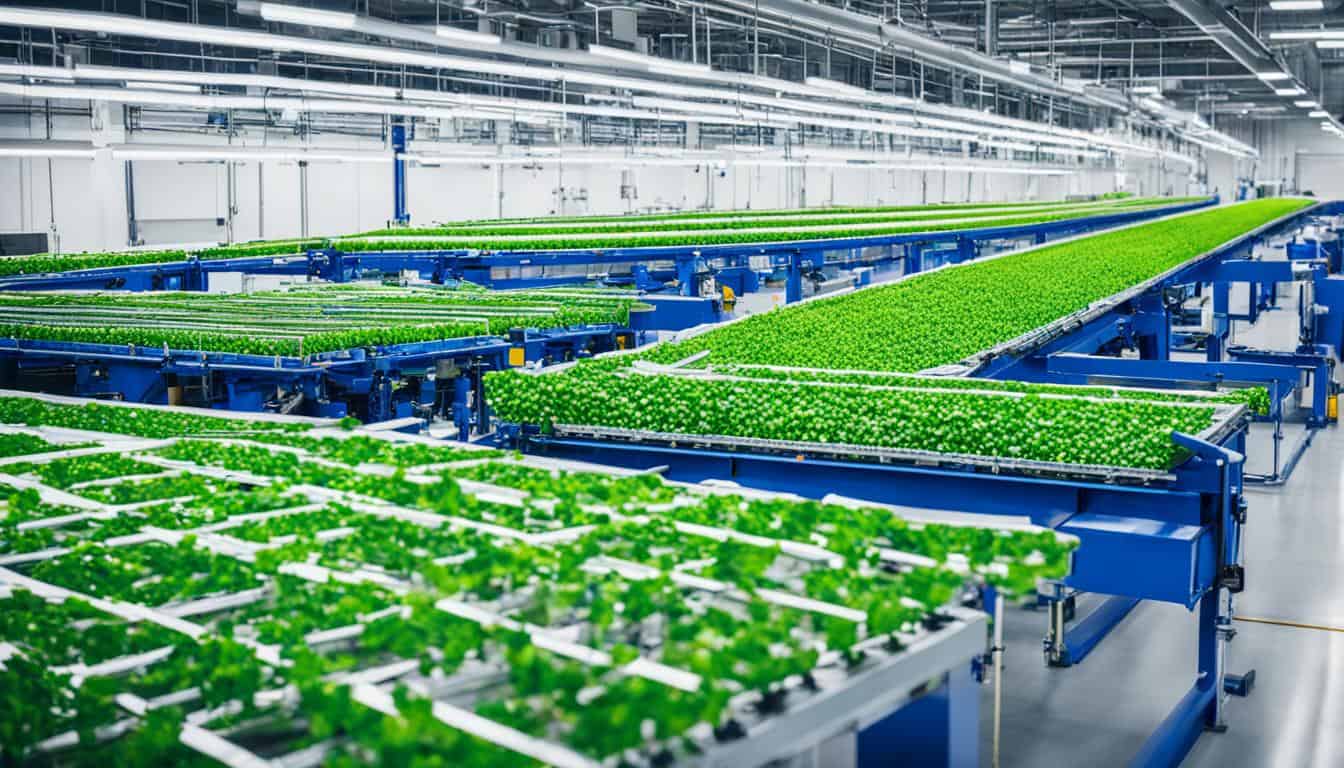
Leave a Reply